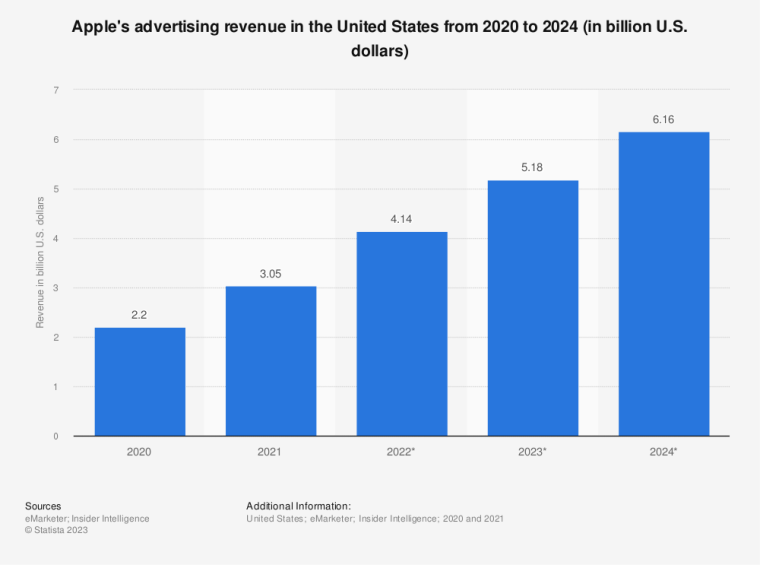
France’s antitrust watchdog, L’Autorité de la Concurrence, has opened a formal investigation into Apple over concerns the tech giant is abusing its dominant position in relation to its App Tracking Transparency advertising rules.
The probe comes as the regulator suspects Apple of imposing unfair and non-transparent conditions on app developers for using user data for advertising, which could negatively impact the company’s sprawling advertising business.
In a statement of objections issued to Apple, L’Autorité claimed that the iPhone maker “has misused its dominant position by applying unfair, non-objective, and unclear conditions for using user data for advertising.” This notice begins a process where Apple can respond before the regulator makes a final decision.
Apple Claims That its Apps Do Not Track User Data
Apple’s App Tracking Transparency feature, introduced in 2021, requires apps to get users’ permission before collecting their data for ad targeting. While third-party apps must display a pop-up notification, Apple’s own apps do not – prompting claims that the firm is giving its applications preferential treatment.
Apple argues that it does not need to show prompts as its apps do not track users for ads. However, critics say that Apple has an unfair advantage as it can still serve personalized ads using its vast trove of first-party customer data.
Also read: Apple App Store Developers Bring in Record Billings in 2022
The probe could have significant ramifications for Apple’s fast-growing digital advertising business, which the company has described as “incredibly fast-growing”. Securing a larger chunk of the $600 billion global digital advertising market has become a major priority for Apple as it seeks to diversify its revenue base beyond hardware sales.
In a statement sent to media outlets, Apple defended its advertising practices, by saying: “App Tracking Transparency gives users more control by requiring all apps to ask permission before tracking them. Apple, like all developers, is required to comply”.
The firm maintained that it holds itself “to a higher standard of privacy than it requires of any other developer”. Apple (AAPL) added that it would “continue to engage constructively” in conversations with the French competition authority to settle the probe.
However, regulators and some industry observers argue that Apple has an unfair advantage over third-party developers due to its control of both the iOS operating system and the App Store – giving it dominance to shape rules in its favor. Germany, Italy, and Poland have all opened similar probes into Apple’s advertising practices.
Regulators Across the World Are Clamping Down on Digital Advertisers’ Practices
The probe underscores the growing regulatory scrutiny on Big Tech firms like Apple, especially regarding their dual role as both gatekeepers of key platforms and major competitors within those ecosystems.
Regulators want to ensure that Apple’s rules are applied objectively and do not unfairly benefit the company’s own services and advertising business to the detriment of third-party developers and consumers.
How the French investigation proceeds could influence Apple’s approaches to advertising and privacy across Europe. A negative ruling would likely require Apple to modify its practices to offer a more level playing field for third-party advertisers and apps – posing a threat to the growth of its nascent but increasingly important ads revenue channel.
Just a couple of days ago, a group of app developers filed a class-action lawsuit against the iPhone maker for nearly $1 billion in damages alleging that the company’s practices and commissions charged to the companies that offer their apps through its marketplace are excessive.
In addition, Apple forces developers to pay a commission on all in-app purchases and they can only use its payment gateway – Apple Pay – to process all transactions. The company’s dominant position in both the advertising and mobile app market has been the target of criticism multiple times in the past and regulators across the world have been taking action lately to curve the firm’s perceived monopoly on both fronts.
